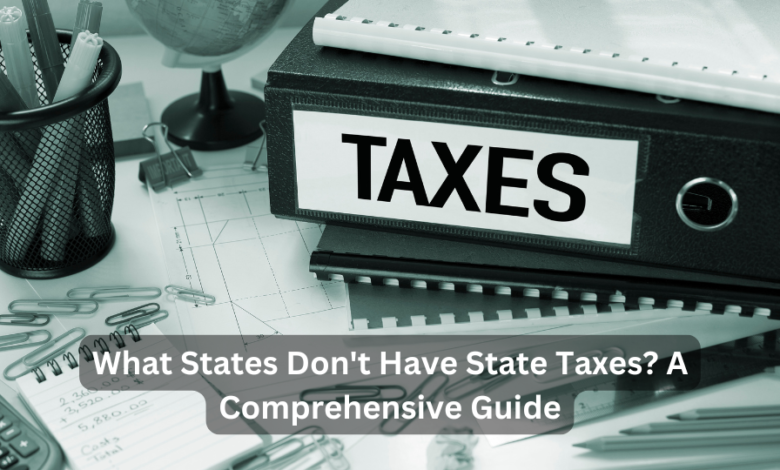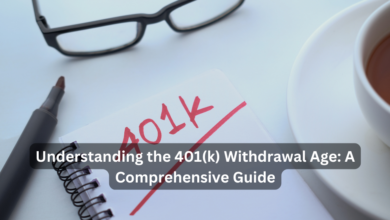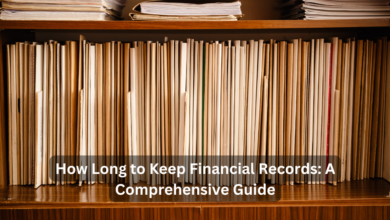What States Don’t Have State Taxes? A Comprehensive Guide

In the United States, state tax laws vary widely, creating a complex landscape for individuals and businesses. Some states impose no income taxes, making them attractive to people seeking to minimize tax liability. This can lead to significant savings, especially for high-income earners. As of September 2024, nine U.S. states have opted out of taxing personal income, offering financial relief to residents and boosting their appeal for relocation and investment. But which states are these, and what does it mean for you? Let’s dive into the states that do not impose state income taxes, exploring the advantages, potential trade-offs, and how this tax policy impacts both residents and the state’s economy.
The Nine States Without State Income Taxes
There are currently nine U.S. states that do not impose a personal income tax. These are:
- Alaska
- Florida
- Nevada
- New Hampshire (does tax dividends and interest income)
- South Dakota
- Tennessee
- Texas
- Washington
- Wyoming
Each of these states has its unique economic landscape and tax structure that compensates for the absence of personal income tax, which we will explore further.
1. Alaska: The Last Frontier and Tax Haven
Alaska is famous not only for its vast wilderness but also for its lack of a state income tax. In fact, Alaska goes a step further by not imposing a state sales tax either, although local municipalities may levy their own. Residents even receive an annual Permanent Fund Dividend from oil revenues, which in recent years has ranged between $1,000 and $2,000 per person.
However, the absence of personal income tax in Alaska comes with some trade-offs. The state relies heavily on revenues from oil production, and fluctuations in oil prices can impact state funding for services like education and infrastructure. Nevertheless, Alaska remains an attractive option for those who prioritize low taxation and the allure of the great outdoors.
2. Florida: Sunshine and Tax Benefits
Florida is known for its beaches, warm climate, and lack of state income tax. Instead, Florida relies on sales tax and tourism revenue to fund its state budget. The sales tax rate in Florida is relatively low at 6%, although local governments may impose additional levies.
With a booming tourism industry and a growing population, Florida continues to attract retirees, remote workers, and high-income earners looking to enjoy the state’s tax advantages. The state’s favorable business environment also makes it a hub for entrepreneurs and corporations.
Florida’s lack of state income tax, combined with its strong economy and high quality of life, makes it one of the most tax-friendly states in the U.S.
3. Nevada: A Gambler’s Paradise, and More
Nevada’s lack of state income tax is partly sustained by its thriving gaming and tourism industries. The state relies heavily on revenue from casinos, entertainment, and tourism-related activities, which contribute significantly to Nevada’s economy.
In addition to no state income tax, Nevada offers a low property tax rate, which is a boon for both residents and businesses. However, the state does impose a sales tax that can be as high as 8.375% depending on the locality.
Las Vegas and Reno serve as major economic hubs in the state, and Nevada continues to attract businesses, particularly in tech and logistics, due to its business-friendly environment.
4. New Hampshire: No Income Tax, But With a Catch
While New Hampshire doesn’t have a state income tax on wages, it does impose a 5% tax on interest and dividends. This means that while you won’t be taxed on your paycheck, any investment income could still face a tax bill.
New Hampshire also has relatively high property taxes, which help fund local government services. For residents with substantial investment portfolios, the state’s tax on dividends and interest may offset the benefit of no wage tax. However, for those primarily earning income through wages, New Hampshire remains an attractive option.
5. South Dakota: Wide Open Spaces, Minimal Taxes
South Dakota is another state with no personal income tax, which, combined with low property taxes and no corporate income tax, creates a very favorable environment for individuals and businesses alike. The state primarily generates revenue through a 4.5% sales tax, though localities may add to this rate.
South Dakota’s economy is largely agricultural, but Sioux Falls has become a financial hub, attracting businesses in finance, insurance, and healthcare. The lack of both corporate and personal income taxes has positioned South Dakota as an appealing state for business relocations.
6. Tennessee: The Volunteer State’s Tax System
Tennessee does not tax earned income but, like New Hampshire, imposes a tax on interest and dividends. However, in 2021, Tennessee fully repealed its Hall Tax, a state tax on investment income, which makes the state even more appealing for retirees and high-net-worth individuals.
The state relies primarily on sales tax, which ranges from 7% to 9.75% depending on the county. Tennessee also has relatively low property taxes, making it an attractive state for homeowners.
7. Texas: No Income Tax in the Lone Star State
Texas, the second-largest state in the U.S., has long been known for its lack of a state income tax. Instead, the state relies heavily on property taxes and sales taxes to fund public services. The property tax rate in Texas is one of the highest in the country, often exceeding 2% of the property’s value.
Despite this, Texas’s strong job market, low cost of living, and favorable tax environment have made it a popular destination for individuals and businesses alike. The state has seen significant population growth, particularly in cities like Austin, Dallas, and Houston, driven by people seeking better economic opportunities and lower taxes.
Texas is also a business-friendly state, with no corporate income tax, making it a hotspot for startups and tech companies.
8. Washington: No State Income Tax in the Evergreen State
Washington state is another member of the no income tax club, though it makes up for this through high sales tax rates, which can reach up to 10.4% in some localities, and excise taxes on products like gasoline and cigarettes.
While Washington has no personal income tax, the state does impose a business and occupation (B&O) tax, which is a tax on gross receipts of businesses. However, this has not stopped tech giants like Amazon and Microsoft from thriving in the state, particularly in Seattle.
Washington also has relatively high property values, especially in urban areas, which can lead to higher property taxes for homeowners.
9. Wyoming: Low Taxes, High Quality of Life
Rounding out the list is Wyoming, a state with no state income tax, no corporate income tax, and low property taxes. Wyoming funds its state budget through mineral extraction industries, particularly oil, coal, and natural gas.
The state also has a 4% sales tax, which is relatively low compared to other states. Wyoming’s low-tax environment, combined with its natural beauty, makes it an appealing state for both individuals and businesses.
Why Do Some States Opt for No Income Tax?
The decision for a state to forego personal income tax usually involves a strategy to attract businesses and high-income earners, bolstering the local economy through other forms of taxation, such as sales tax, property tax, or industry-specific taxes. States like Texas, Florida, and Nevada leverage their lack of income tax to attract business relocations, making them appealing for corporate headquarters and startups.
Additionally, states without income tax often rely on alternative revenue sources, such as tourism, energy production, or mineral extraction, to fund essential public services like education, transportation, and infrastructure.
Are There Any Trade-offs?
While no income tax sounds appealing, it’s important to understand the trade-offs. In many of these states, there may be higher sales taxes or property taxes, which could offset the savings on income tax. For example:
- Texas has one of the highest property tax rates in the country.
- Washington has a B&O tax that affects businesses.
- Nevada relies heavily on tourism and gaming taxes.
These alternative revenue sources ensure that state governments can still provide necessary services, but they may affect your overall cost of living or doing business in these states.
Who Benefits the Most From No State Income Tax?
Residents in high-income brackets or those with significant investments benefit the most from states without income tax, as they can retain a higher portion of their earnings. Additionally, retirees and remote workers who move to states like Florida or Texas to escape taxation on income often see substantial financial advantages.
Business owners also benefit, as states like South Dakota, Wyoming, and Tennessee offer low corporate taxes, making these locations attractive for starting or relocating businesses.
Conclusion
In 2024, the allure of living in a state without income taxes remains strong for many Americans. While these states offer clear financial benefits, it’s essential to consider the full tax landscape—including sales, property, and industry-specific taxes—before making a decision. Each of the nine no-income-tax states has its pros and cons, and what works best will depend on your income sources, lifestyle, and financial goals.
If you’re considering a move to one of these states or are curious about how their tax structures might affect your bottom line, consult with a tax professional to ensure you make the most informed decision. Living in a state without income tax can certainly provide significant savings, but only if you’re aware of the full tax picture and how it impacts your overall financial plan.




